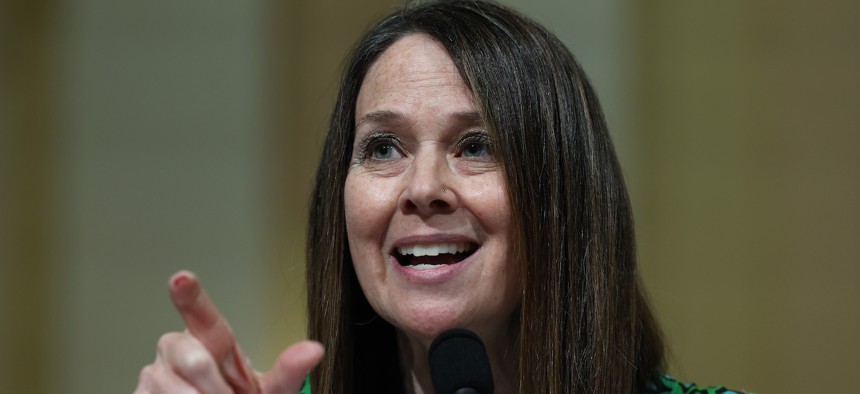CISA unveils election resource page for officials and workers

CISA Director Jen Easterly, shown here giving testimony in January 2024, is looking to provide free election security resources to state and local officials Kevin Dietsch/Getty Images
Election officials have several fears on their mind this year, including possible foreign interference in elections and physical threats linked to conspiracy theories.
The Cybersecurity and Infrastructure Security Agency unveiled a webpage on Wednesday that provides election security resources to state and local governments, as well as election workers.
The launch of the #Protect2024 site comes amid heightened fears of how cybercriminals and nation-state governments may seek to interfere in the 2024 election process through hacking or disinformation attempts. It also comes amid domestic distrust and a loss of faith in electoral systems following widespread claims of voter fraud in the 2020 presidential election that ended in the January 6 attack on the U.S. Capitol.
“For years, America’s adversaries have targeted U.S. elections as part of their efforts to undermine U.S. global standing, sow discord inside the United States, and influence U.S. voters and decision making. We expect 2024 to be no different,” the site says.
The webpage is geared toward election offices, providing free resources for state and local officials, CISA Director Jen Easterly said in a statement. Those resources include guides on how to set up multi-factor authentication and obtain physical security assessments for election infrastructure.
The site also encourages entities to join the Election Infrastructure Information Sharing and Analysis Center, which became a part of the National Council of ISACs in 2019.
Participants in the electoral arena are grappling with a plethora of anxieties this year. A deepfaked audio phone call of President Joe Biden that’s under U.S. investigation has been deemed just the tip of the iceberg for disinformation in November and beyond. Election workers are fearful that voter distrust and conspiracy theories will threaten their lives. Officials also say that congressionally appropriated funding for elections won’t have much use in 2024, assuming any funding measure passes.
Election administrators have told lawmakers repeatedly that more federal assistance is needed to safeguard voting systems and personnel from both cyber and physical threats.
Former National Security Agency and Cyber Command leader Gen. Paul Nakasone recently told Congress that the November election would be the safest yet, adding he has not seen efforts to disrupt and interfere in the election process.
Easterly in that same hearing later said that the U.S. should “absolutely expect” foreign actors will attempt to influence elections but stressed the American people should be confident in election infrastructure.






